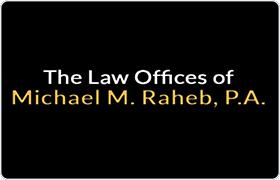Nokomis Criminal Lawyer, Florida
Sponsored Law Firm
-
 x
x

Click For More Info:
-
Law Offices of Michael M. Raheb P.A.
2423 First St Fort Myers, FL 33901» view mapCriminal Defense Law Legal Problem? Call Us 24/7
At the Law Office of Michael M. Raheb, we strive to ensure each of our clients receives the individual attention and representation necessary to obtain an optimal outcome.
800-890-8981
John Casella
Personal Injury, Civil Rights, Criminal, Federal Trial Practice
Status: In Good Standing *Status is reviewed annually. For latest information visit here Licensed: 42 Years
Alan Brent Mcpeek
Criminal, Family Law, Federal Appellate Practice, Commercial Real Estate
Status: In Good Standing *Status is reviewed annually. For latest information visit here Licensed: 31 Years
Rose Marie Price
Real Estate, Government, Criminal, Administrative Law
Status: In Good Standing *Status is reviewed annually. For latest information visit here Licensed: 52 Years
Michelle R. Tustin
Family Law, Criminal
Status: In Good Standing *Status is reviewed annually. For latest information visit here Licensed: 25 Years
 Michael M. Raheb Fort Myers, FL
Michael M. Raheb Fort Myers, FL Practice AreasExpertise
Practice AreasExpertise